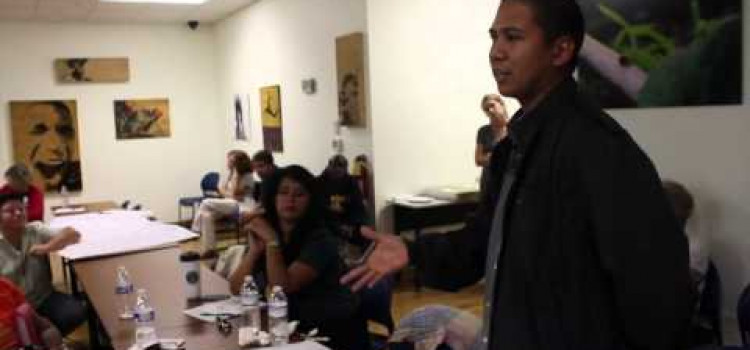

This summer the Long Beach Coalition for Good Jobs & A Healthy Community held a series of workshops to educate community members about the workings of local government. Their stated goal was “to build collective knowledge of the power of local government, where branches of government get their power, how they impact the community, and how residents can ensure local government works for all residents.”
When I first walked into the room at Long Beach Community Action Partnership on Aug. 7, the first question the speakers asked was, “What do you guys know about the role of the mayor and city staff?” I automatically froze and kept my mouth shut because I had nothing to contribute to that question.
I was ashamed because honestly, I didn’t even know the mayor’s name. But I wasn’t the only one. In a room of about 40 participants, only a handful of hands were raised when the facilitator asked the mayor’s name.
Still, at least some people knew that the mayor gets elected for a four-year term and has appointment power. A few also knew that the city attorney interprets city charters and ordinances, but most people knew nothing, and a lot of people were confused. There were a couple instances when participants mixed up city staff names and mistook council members for council management, mixing up their roles.
Myself, along with many youth in the community, are unaware of what goes on in government. Most of us know about the executive, judicial and legislative branch, but that’s as far as it goes. Although we take government and economic classes in high school, we are still confused about how local government works and will often carry that lack of knowledge into adulthood.
How does that lack of knowledge affect engagement? Well, one theory is that when people are uniformed, they aren’t engaged and they don’t vote.
During the workshop I attended, which analyzed mayoral power, we discussed what ethnic communities vote in Long Beach. I learned that Whites in Long Beach overwhelmingly made up the majority of voters at 77 percent in 2010. Latinos came in next at just 13 percent; African-Americans at 7 percent; and Asians at 3 percent, according to statistics discussed at last year’s People’s State of the City.
At first I felt like an outcast. I didn’t feel old or experienced enough to attend these kinds of workshops but after attending, I realized there is no “correct” age to learn about what’s going on in your community.
All around the room, folks echoed how important it was for youth to be involved in developing leadership skills and creating change. However, many of us wouldn’t even know where to start because we aren’t sure what needs to be changed.
Attending these meetings at such a young age inspires me to be the one who’s aware of everything that affects my life fifteen years down the line. It makes me want to take action right now to learn about my community and have the knowledge to voice my concerns and make a change. I also want to encourage more youth to seek more information on government power.
Having attended this workshop, I’ve taken away a lot of information. I’m proud of myself for being involved in learning about government and knowing who holds power over my community. As a young African American woman, I now want to become more engaged by registering to vote as soon as I can and encouraging my friends to do as well, so that we can help make our voices count.
